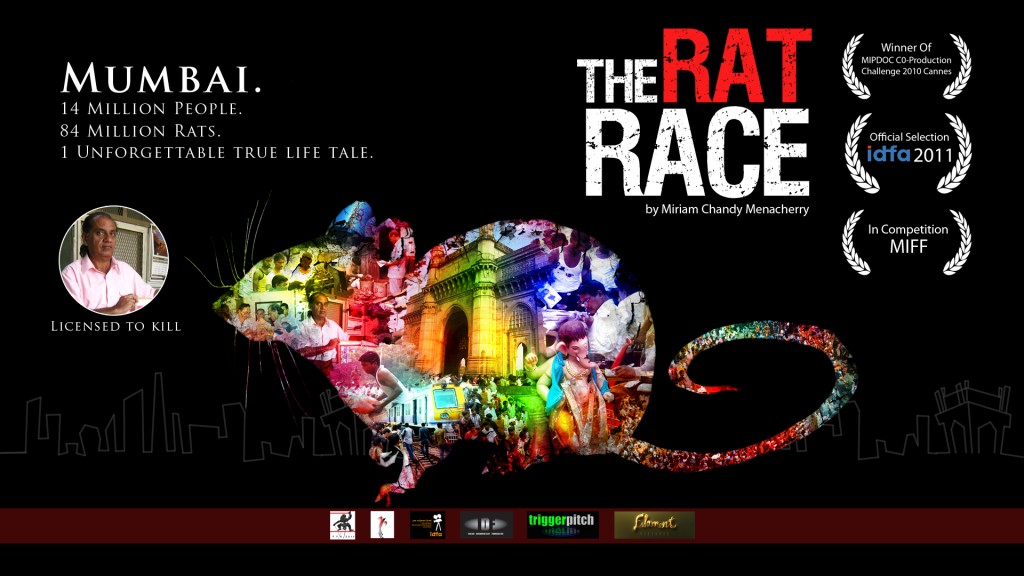The story of Mumbai’s rat killers gives me the chance to represent what I believe are critical issues of developing cities – livelihood, consumption and garbage accumulation. Mumbai is my home it is also the growth engine of one of the fastest growing economies of the world – a city of stark contrasts and contradictions.
On the one hand there are hundreds of burgeoning structures, glass and concrete buildings that would rival any world capital. On the other, existing side-by-side in an incongruous union, are hutments, rubbish heaps, waste and excrement. Even amongst its denizens there are the ultra-rich (two of the five richest people in the world are Indians), well-heeled businessmen, successful executives and artists thriving in this city of opportunities and then there are the other Mumbaikars, the faceless, nameless multitudes who exist along the underbelly of the metropolis.
As the rat killer stalks the sidewalks of Mumbai dotted with settlements, he traverses both public and personal spaces. Above him looms chrome buildings that are the landscape of the future and below him are trails of garbage and refuse. To earn his daily wage and secure a brighter future for his children, he wages the most primitive battle between man and animal with the most basic of implements. Why such gruesome methods? Would not fumigation or poison be more humane? But how does one fumigate spaces swarming with rats and humanity? And how does one use poison where rodents and people forage for food? The rat killer to me presents the human face of development with all its inherent contradictions.
At a time that the world looks at India at the cusp of economic greatness, The Rat Race encapsulates the struggles, sacrifices and minor triumphs of the ‘other India’ far removed from the glitz and glamour of TV adverts and of course the booming economy. My film is a tribute to the working class, the faceless, nameless multitudes who exist along the underbelly of the metropolis, eking out meagre livings and yet doing their best to make their city a better place to live in, with dignity and good humour.
It is a point of view that straddles the ambitions of a fast emerging economy and the daily struggles of a population trying to keep up. A complex layered narrative that is brutal and disturbing as it is humorous and tender… but at the end I believe a human story that deserves to be told. The truth is that even for the people of Mumbai, the story of its rat killers is an untold one… people who work while the rest of the city sleeps, oblivious of their efforts.


